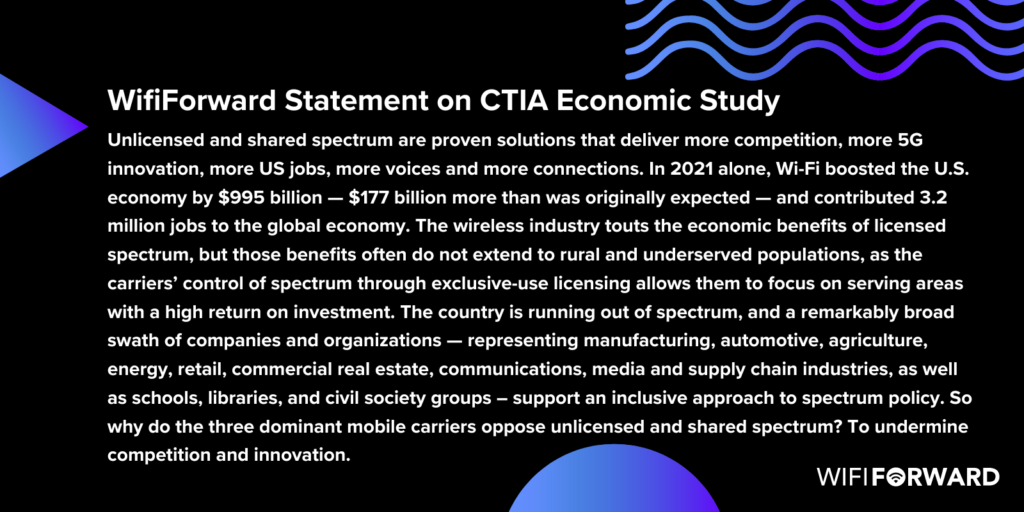Unlicensed and shared spectrum are proven solutions that deliver more competition, more 5G innovation, more US jobs, more voices and more connections. In 2021 alone, Wi-Fi boosted the U.S. economy by $995 billion — $177 billion more than was originally expected — and contributed 3.2 million jobs to the global economy. The wireless industry touts the economic benefits of licensed spectrum, but those benefits often do not extend to rural and underserved populations, as the carriers’ control of spectrum through exclusive-use licensing allows them to focus on serving areas with a high return on investment. The country is running out of spectrum, and a remarkably broad swath of companies and organizations — representing manufacturing, automotive, agriculture, energy, retail, commercial real estate, communications, media and supply chain industries, as well as schools, libraries, and civil society groups – support an inclusive approach to spectrum policy. So why do the three dominant mobile carriers oppose unlicensed and shared spectrum? To undermine competition and innovation.

